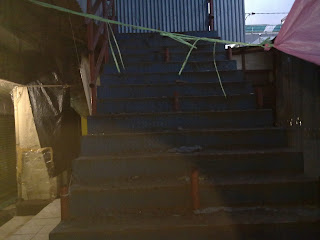The concept is to adjust all principals of investment and return of investments to inflation/deflation level. So if you borrow 100 dollars, and the inflation rate was 1%, you should return 101 dollars of principals plus interest. But if deflation occured 1%, you should return only 99 dollars plus interest
In deflation oriented banks, depositors would be given two accounts. The first type only saves money but yields any/no interests. The second one was an investment account, whenever someone borrowed money, the bank would transfer depositor's money from the regular account to the investment account, in which then the depositors would earn interests. The interest given as the reward for providing liquidity to borrowers. When the time is due for the money to be returned, the principal return would be adjusted to inflation/deflation rate as well.
In a strong bank, depositors should be able to withdrew money from the investment account anytime, because the system could access enough cash to replace the lending. In even stronger banks, all of depositors' money could be put in the investment account, because the bank had a lot of borrowers and has enough liquid capital of its own, to support the lending.
Now if the system was widely adopted, banks that experienced more borrowing demands than the cash that were available for them could request deposits from the central bank. The central bank then would look for other banks that had surplus of deposits, negotiate, and transfered the money to the previous banks after they agreed of a terms and conditions. If all banks experienced too much borrowing demands, the central bank could provide for them from its reserve.
If this system works well, governments could reduce or even not collect taxes from their citizens. To fund their projects and expenses, they would just print money. Printed money could also be distributed to remote areas, or to farmers, so people in more prosperous places would venture to the remote areas and brought with them goods and services or even infrastructures to improve their welfare.
Our scarcity is not of time nor energy nor money, our scarcity is of solutions, mutual solutions. And solutions are unlimited, people could keep on creating solutions and therefore create deflations, good deflations, one that improve the level of ease of access to essentialities.
Ofcourse government should not print money based on deflation made from consuming unsustainable products. Deflation of gas prices should not initiate the printing of money, unlike lets say an invention of a variety of rice that could consume sea water productively.




